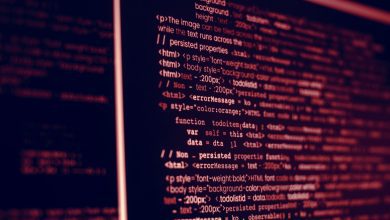Choosing the Best Python Certification: A Comprehensive Guide

Python, a versatile and powerful programming language, has taken the tech world by storm. Its simplicity, readability, and vast array of libraries make it a preferred choice for web development, data analysis, artificial intelligence, and more. With Python’s increasing prominence, the demand for skilled Python professionals is on the rise. Obtaining a reputable Python certification is not just about adding a badge to your resume; it’s about validating your skills, gaining expertise, and securing a competitive advantage in a rapidly evolving job market. In this comprehensive guide, we’ll explore the essential factors to consider when choosing the best Python certification. As you embark on this journey, keep in mind that at KVCH, we offer the Best Python Certification to guide you toward professional excellence.
Understanding the Significance of Python Certification
Certifications play a vital role in the professional world. They act as a testament to your skills, knowledge, and dedication to your craft. In the realm of programming, a Python certification carries significant weight, signaling to potential employers that you possess a strong foundation in the language and are capable of applying it effectively. By investing time and effort into obtaining a Python certification, you’re demonstrating your commitment to personal growth and mastery.
Identifying Your Goals
Before diving into the world of Python certifications, take a moment to define your goals. What drives you to pursue a Python certification? Are you seeking a career transition, aiming to enhance your skills within your current job, or simply eager to deepen your understanding of Python? Understanding your motivation will guide your certification journey. It will also help you select a certification that aligns with your specific career aspirations.
Exploring Certification Options
The realm of Python certifications is diverse, catering to individuals at different skill levels and with varied career goals. Let’s explore some prominent Python certifications and their applications:
1. Python Institute Certifications: The Python Institute offers a series of certifications, ranging from entry-level to professional. These certifications validate your understanding of Python’s syntax, data types, control structures, and more. The “PCAP – Certified Associate in Python Programming” is an excellent starting point for beginners, covering foundational concepts and coding practices.
2. Microsoft Certified: Azure AI Engineer Associate**: If your passion lies in the realm of artificial intelligence and machine learning using Python, this Microsoft certification is worth considering. It validates your ability to build, train, and deploy machine learning models on Azure.
3. Google Cloud Professional Data Engineer: For those interested in data engineering with Python on the Google Cloud Platform, this certification is tailored to your needs. It emphasizes data analysis, processing, and visualization using Python.
4. AWS Certified Machine Learning – Specialty: If you’re delving into machine learning with Python on Amazon Web Services, this certification equips you with the skills needed to design, implement, and deploy machine learning models.
5. Certified Python Developer (CPD): Offered by the Python Institute, the CPD certification is designed for professionals seeking a comprehensive understanding of Python’s programming concepts and their practical applications. This certification covers advanced topics, making it suitable for experienced developers.
6. Certified Data Science Specialist: If your interest lies in data analysis and data science, this certification is tailored to validate your expertise in using Python for data manipulation, visualization, and predictive modeling.
Assessing Curriculum and Content
A certification’s curriculum is the heart of your learning journey. It defines what you will learn, practice, and eventually apply in your career. When evaluating certification options, thoroughly review the curriculum to ensure it aligns with your goals. The ideal curriculum should cover a wide range of Python concepts, from basic syntax and data structures to advanced topics relevant to your chosen specialization. Look for certifications that offer a balance between theory and hands-on practice.
Accreditation and Recognition
Certification credibility matters. Opt for certifications from recognized organizations that hold weight in the industry. Certifications from established entities like Python Institute, Microsoft, Google, and AWS carry industry recognition and are valued by employers. These certifications are more likely to reflect the real-world skills demanded by today’s job market.
Hands-On Learning and Practical Experience
Python is a language that thrives on practical application. While theoretical knowledge is essential, the ability to apply that knowledge to real-world scenarios is what sets successful professionals apart. A well-rounded certification program should include hands-on labs, projects, and assignments that challenge you to implement what you’ve learned. Practical experience not only solidifies your understanding of Python but also hones your problem-solving skills, which are critical in a programming career.
Preparation Resources
Certification preparation requires diligent study and practice. Seek certifications that provide comprehensive study resources. These may include official documentation, recommended textbooks, online tutorials, video lectures, practice exams, and mock tests. These resources not only guide your learning but also help you gauge your readiness for the certification exam.
Community and Support
The journey to certification is often smoother when shared with a community. Engage with online forums, discussion groups, and social media platforms where fellow learners gather. These platforms offer a space to ask questions, share insights, and learn from others’ experiences. The sense of community not only helps you overcome challenges but also exposes you to different perspectives on Python concepts and applications.
Return on Investment (ROI)
While pursuing a certification demands an investment of time, effort, and often money, it’s important to view it as an investment in your career’s future. Research the average salary increase or job opportunities associated with a particular certification. Assess the return on investment to ensure that your chosen certification aligns with your career goals and offers tangible benefits.
The Pros of Pursuing a Python Certification
- Validation of Expertise: A Python certification validates your proficiency in the language. It demonstrates to employers that you possess a strong understanding of Python’s syntax, concepts, and best practices.
- Career Advancement: A certified Python professional is likely to have a competitive edge in the job market. Employers often prioritize candidates who hold recognized certifications, which can lead to better job opportunities and career growth.
- Skill Enhancement: Certification programs cover a comprehensive curriculum, enhancing your knowledge of Python. You’ll learn advanced techniques, coding patterns, and real-world applications that can elevate your programming skills.
- Industry Recognition: Reputable Python certifications are recognized by the industry, providing you with credibility and validation. This recognition can be especially beneficial when applying for roles in technology-focused companies.
- Networking Opportunities: Certification programs often introduce you to a community of like-minded individuals. Engaging with fellow learners, instructors, and industry experts can lead to valuable networking connections.
- Structured Learning Path: Certification programs offer a structured path for learning. This eliminates the need to search for resources and enables you to follow a curriculum designed to cover essential Python concepts comprehensively.
The Cons of Pursuing a Python Certification
- Time and Commitment: Preparing for a Python certification requires a significant investment of time and effort. Balancing study, work, and personal commitments can be challenging.
- Financial Investment: Many certification programs involve costs, including registration fees, study materials, and exam fees. While the investment can pay off in the long run, it’s important to consider your budget.
- Focus on Exam Objectives: Some certification programs may prioritize exam-specific content over a broader understanding of Python. This approach might limit your exposure to practical applications of the language.
- Changing Technology Landscape: The technology landscape evolves rapidly, and the content covered in a certification program might not always align with the latest industry trends and tools.
- Limited Practical Experience: While certification programs often include practical exercises, the real-world application of Python requires continuous practice and project work beyond the program’s scope.
Exploring Career Paths
A Python certification can open doors to various career paths, each with its own set of opportunities and challenges:
- Web Development: With a strong foundation in Python, you can pursue a career in web development. Frameworks like Django and Flask enable you to create dynamic and interactive web applications.
- Data Analysis and Science: Python’s data manipulation libraries make it an ideal choice for data analysis. Certified Python professionals can analyze data, derive insights, and make informed decisions.
- Machine Learning and AI: Python is widely used in machine learning and AI projects. Professionals with certifications can build predictive models, natural language processing applications, and more.
- Automation and Scripting: Python’s scripting capabilities are invaluable for automating tasks and processes. Certified professionals can develop scripts to streamline workflows and boost efficiency.
- Software Development: Python is employed in software development for its simplicity and readability. Certified developers can contribute to creating software applications, tools, and utilities.
- DevOps: Python is used in DevOps for automation, deployment, and configuration management. A certification can help you excel in roles that bridge development and operations.
- Cybersecurity: Python is a versatile language for scripting and security analysis. Certified professionals can contribute to cybersecurity by developing tools and scripts for threat detection and analysis.
**Conclusion**
Choosing the best Python certification is a strategic decision that can significantly impact your career trajectory. As the demand for Python professionals continues to grow, a recognized certification can provide a competitive edge. At KVCH, we offer the Best Python Certification to guide you on this transformative journey. By understanding your goals, exploring certification options, assessing curriculum and content, evaluating accreditation, seeking hands-on learning, utilizing preparation resources, engaging with the community, and considering the ROI, you can embark on a certification journey that not only enhances your Python skills but also propels you toward professional excellence. Remember, a well-chosen Python certification is not just a badge; it’s a testament to your commitment to continuous learning and mastery of a versatile and influential programming language.





